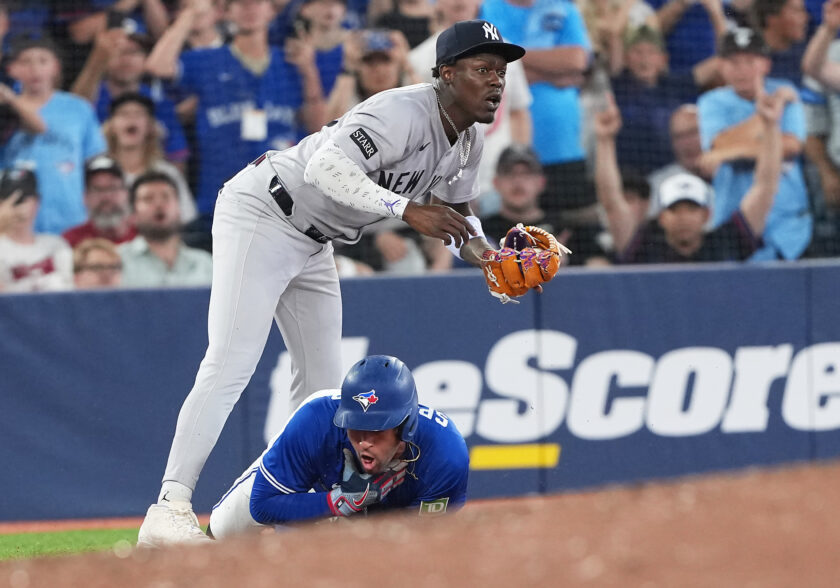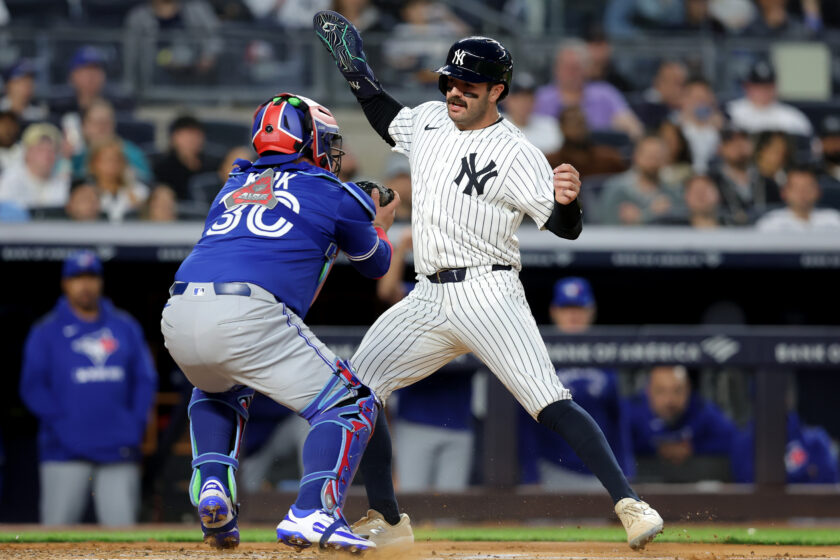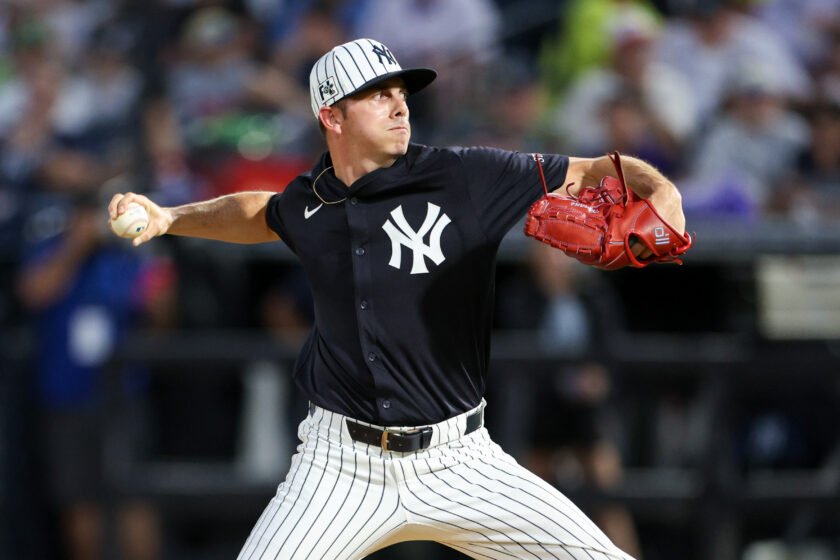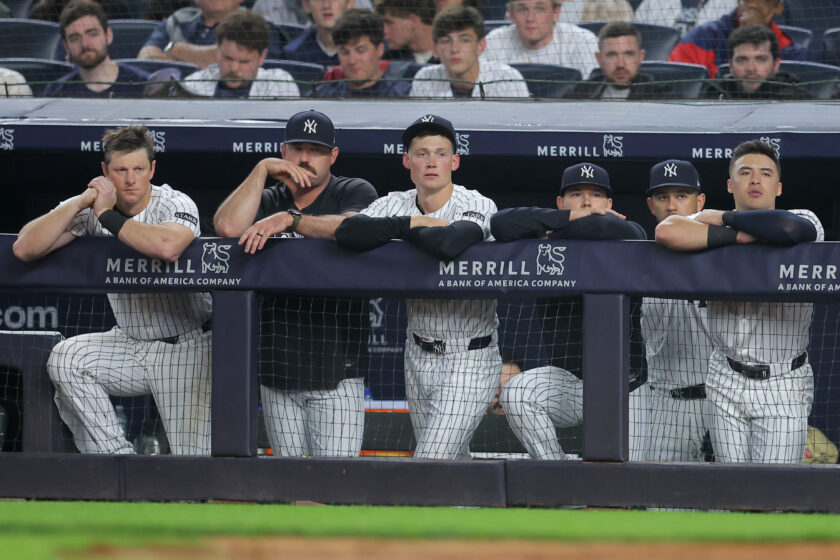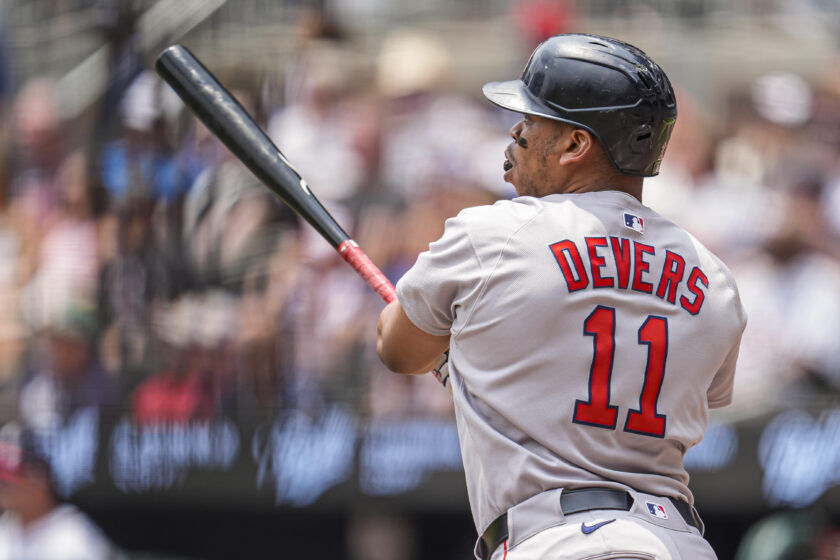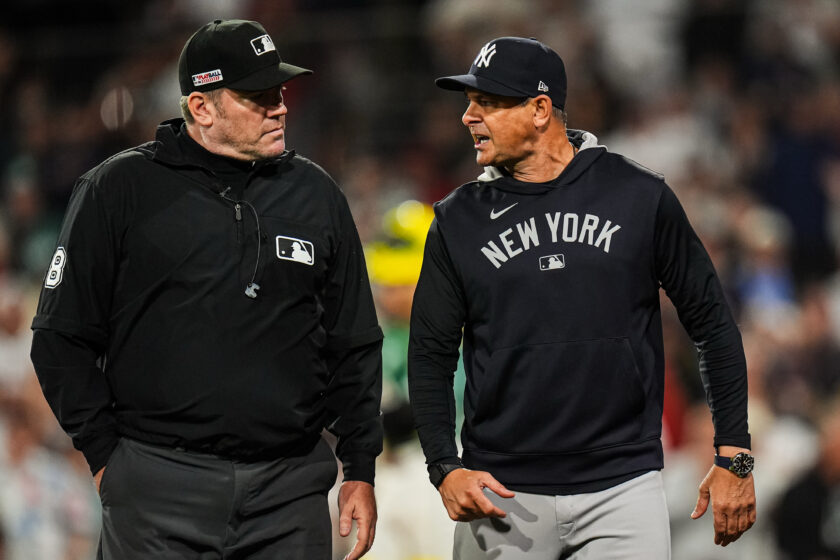Should Yankees look to Japan to fill outfield void?
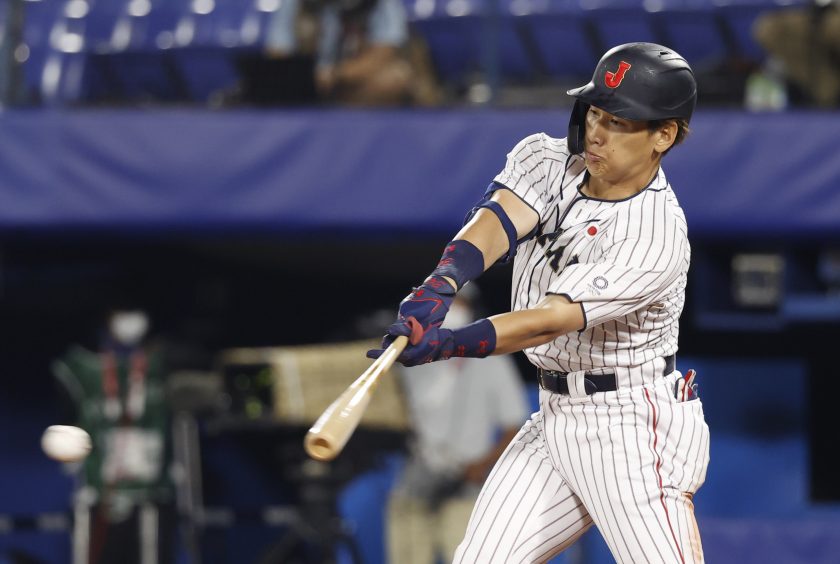
International free agency giveth and international free agency taketh away.
This is a lesson the Yankees know all too well and one Brian Cashman should remember this winter. Everyone remembers Masahiro Tanaka, but not Kei Igawa. We all know and love former World Series MVP Hideki Matsui, but struggle to recall his Mets counterpart Kazuo “Kaz” Matsui (no relation).
All this to say, Jon Heyman of The Post reported Thursday that New York is interested in a new Japanese outfielder. 29-year-old Masataka Yoshida is a lefty bat with a .326 lifetime batting average and .957 OPS in seven years. He has spent his whole career with the Orix Buffaloes and won the league batting title in 2020 and ’21.

There’s no doubt the Yankees need an outfielder independent of Aaron Judge’s free agency. Andrew Benintendi could re-sign, but he’s more of a contact hitter in a baseball world where home runs rule. Injuries are also a worry with him, so going after someone like Yoshida would be tempting. He’s even of slighter build like Benintendi, listed at just 5-foot-8 and 176 pounds.
Let’s pump the brakes. Yes, the prospect of star international free agents excites everybody, and not just those from Japan. Likely AL Rookie of the Year Julio Rodriguez was signed out of the Dominican Republic, as were countless others before him. However, as it pertains to Japanese hitters, it’s hard to find many who really succeeded in MLB.
It doesn’t take a deep research dive to learn this. A grand total of 64 Japanese players have appeared in MLB since pitcher Masanori Murakami debuted for the San Francisco Giants in 1964. Of those 64, only 19 are hitters.
And if we look at these 19 hitters, we can really only say three made a true impact in Major League Baseball: Matsui, Ichiro Suzuki, and Shohei Ohtani. Cubs outfielder Seiya Suzuki could soon join them, but only has a year’s MLB experience thus far.
It’s thus pretty clear that Japanese pitchers fare better in MLB than hitters have. Ohtani just happens to be a unicorn who does both. This isn’t entirely a surprise either, particularly given Nippon Professional Baseball (NPB) has a universal baseball. Back in 2014, Brett Homer of Sport Techie researched the differences between it and MLB’s ball and offered the following:
The consensus though of many scouts and players who have played in both leagues is the Japanese ball is slightly smaller and has a sticky property. Unlike the Japanese ball, the American baseball, which usually comes out of a plastic wrapper, has an almost powder-like quality when fresh out of its wrapper. This quality is the reason why every player or umpire “rubs-up” the baseball with dirt or mud before use. The Japanese ball is game ready and has a better grip. This quality can make the ball easier to control and manipulate, especially with its smaller size.
Now, consider how MLB has notoriously and mercilessly juiced, unjuiced, then re-juiced their baseballs again and again. Suddenly, it makes sense why heralded bats from Japan might struggle.
For example, the Reds gave outfielder Shogo Akiyama a three-year $21 million deal to come over from the Saitama Seibu Lions in 2020. Akiyama was a .299 career hitter in Japan capable of 20-25 home runs a year. Yet, he managed just a .224 mark in 142 games in two years in Cincinnati. He’s now back in Japan, playing for the Hiroshima Carp.
We can also look to former Cubs and White Sox outfielder Kosuke Fukudome. He hit 192 homers for the Chunichi Dragons in nine years before joining the Cubs for four years, $48 million. Fukudome managed just 42 home runs in five MLB seasons before returning to Japan and hitting 100 more in 10 years.
He just retired from playing at 45 years old.
These are the risks of signing Yoshida. The Yankees and other teams know them well. History dictates he’ll either be a star or a washout in MLB with little room for a middle ground. It doesn’t have to be this way but, again, MLB messing with baseballs.
And yet, in spite of all this, maybe Yoshida should be on the Yankees’ radar. The outfield has an Aaron Hicks-sized void in it and Yoshida can fill it. He’s only a year older than Benintendi. Save for Judge, the outfield market doesn’t have any show-stopping names.
But in the end, Yoshida and his MLB fate will be the same no matter who signs him. Will he be as advertised and perhaps prove the second coming of Hideki Matsui? Or will he disappoint and be more associated with the lesser Matsui?
Whatever the answer, the Yankees need an outfielder and need to decide for themselves. Yoshida is either worth the contract or he isn’t. Given the very real possibility that Judge could depart for greener pastures, Yoshida’s upside deserves a good long look.
Josh Benjamin has been a staff writer at ESNY since 2018. He has had opinions about everything, especially the Yankees and Knicks. He co-hosts the “Bleacher Creatures” podcast and is always looking for new pieces of sports history to uncover, usually with a Yankee Tavern chicken parm sub in hand.

